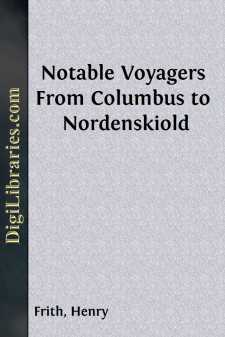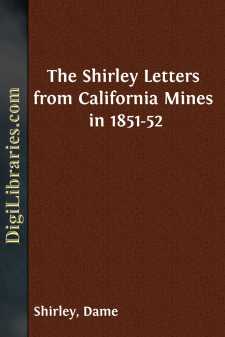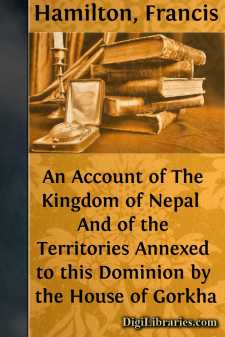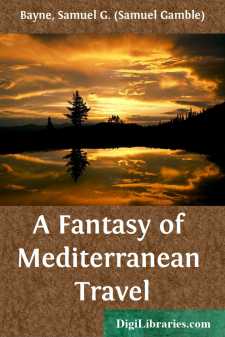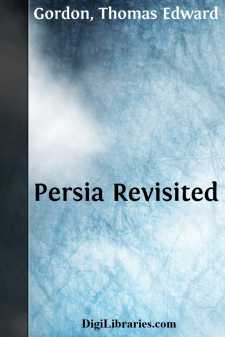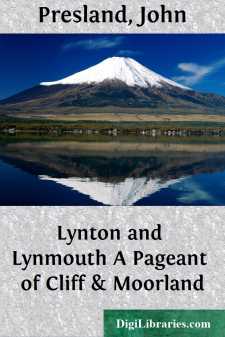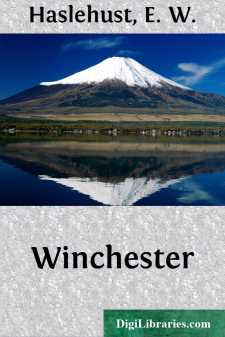Travel
- Africa 29
- Alaska 3
- Asia 46
- Australia & Oceania 26
- Canada 31
- Caribbean & West Indies 5
- Central America 1
- Europe 151
- General 39
- Maps & Road Atlases 1
- Mexico 10
- Middle East 18
- Polar Regions 7
- Reference 11
- Restaurants 1
- Russia 6
- South America 16
- United States 71
Travel Books
Sort by:
by:
Robert Kerr
CHAPTER I. HISTORY OF THE DISCOVERY OF AMERICA, BY CHRISTOPHER COLUMBUS; WRITTEN BY HIS SON DON FERDINAND COLUMBUS[1].[1] Churchills Collection of Voyages and Travels, Vol. II. 479.INTRODUCTION. [Illustration: West Indies] The whole of this chapter contains an original record, being a distinct narrative of the discovery of America by COLUMBUS, written by his own son, who accompanied him in his latter...
more...
by:
Henry Frith
Introduction—A.D. 1486. Columbus before the conclave of Professors at Seville—His parentage and early history—Battle with Venetian galleys—Residence in Portugal—Marries widow of a navigator—Grounds on which he founded his theory—Offers his services to the King of Portugal—His offer declined—Sends his brother Bartholomew to Henry the Seventh of England—Don John sends out a squadron...
more...
by:
Dame Shirley
California, by Dr. Josiah Royce, in the handsome as well as handy American Commonwealths series, is commonly regarded as the best short history of California ever written, and particularly so as to the early mining era. Dr. Royce knew his state, and a more competent writer could hardly have been selected. Reviewing, in his history, almost everything accessible, worthy of consideration, in connection...
more...
by:
Francis Hamilton
INTRODUCTION. This Account, which is intended to describe the country as it stood previously to the war with the British, commencing in the end of the year 1814, is derived chiefly from the following sources. In the first place, during the years 1802 and 1803, I passed fourteen months in the country, mostly in the vicinity of Kathmandu, the capital; and I was accompanied by Ramajai Batacharji, an...
more...
A DREAM OF ANTICIPATION The King of Cork was a funny shipAs ever ploughed the maine:She kep' no log, she went whar she liked;So her Cap'n warn't to blaime. The Management was funnier still.We always thought it dandy—Till it wrecked us on the Golden Horn,When we meant to land at Kandy. The Cap'n ran the boat ashoreIn aerated waters;The Purser died by swallowin' gas,Thus...
more...
CHAPTER I. —London to Baku—Oil-wells and works—Persians abroad—Caspian steamers—Caspian salmon—Enzelli lagoon—The Jews in Persia—Resht trade—'My eye'—Russian road—The tobacco 'strike,' 1891—Collapse of Tobacco Régie—Moulla opposition. The Persians, as a people still nomadic in their habits, and much given to long pilgrimages, have good knowledge of the...
more...
by:
John Presland
DEVONSHIRE The original Celtic name for Devonshire, the name used by the Britons whom Caesar found here when he landed, was probably "Dyfnaint," for a Latinized form of it, "Dumnonia" or "Damnonia," was used by Diodorus Siculus when writing of the province of Devon and Cornwall in the third century A.D. So that the name by which the men of Devon call their country is the name by...
more...
I "The way to mount a horse"—said the Professor. "If you have no ladder—put in the Friend of Humanity." The Professor had ridden through the war for the Union on the right side, enjoying a much better view of it than if he had walked, and knew as much about a horse as a person ought to know for the sake of his character. The man who can recite the tales of the Canterbury Pilgrims,...
more...
by:
E. W. Haslehust
WINCHESTER Few of our English cities are more strikingly situated than the once royal city of Winchester, which lies on the slopes and along the bed of a chalk valley watered by the River Itchen. The greater part of the present city is situated on the right bank of the river, while the best general view of it is justly considered to be that obtained by looking across the Vale of Chilcomb, from the road...
more...
by:
James Boswell
PREFACE. Boswell did not bring out his "Life of Johnson" till he was past his fiftieth year. His "Journal of a Tour to the Hebrides" had appeared more than five years earlier. While it is on these two books that his fame rests, yet to the men of his generation he was chiefly known for his work on Corsica and for his friendship with Paoli. His admiration for Johnson he had certainly...
more...



